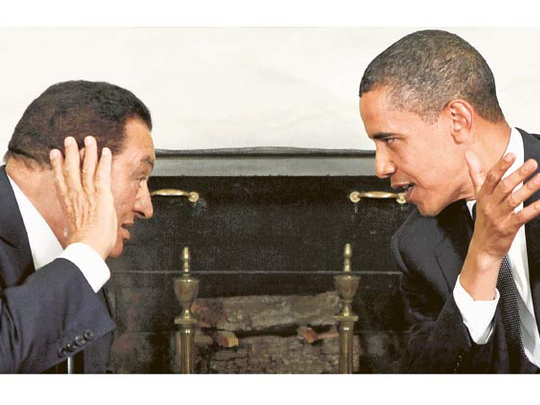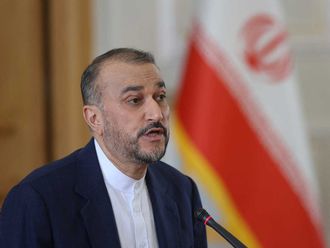
Washington: As with Iran 30 years ago, American leaders again are wrestling with the moral conflict between Washington's demands for democracy among its friends and strategic cosiness with authoritarian regimes seen as key to stability in an increasingly complex world, particularly the Middle East.
The US handling of the Egyptian uprising, regardless of how it plays out, now has other close American friends in the Middle East — particularly in Saudi Arabia and Jordan — watching closely, looking for foreshadowing of what might be in store for them.
For that reason, US officials have taken great pains to walk a middle line between Mubarak, an old friend and bulwark ally in the Arab world, and the profound street protests that threaten to drive him from power.
"It's not a question of who retains power," US Secretary of State Hillary Clinton said. "It's how are we going to respond to the legitimate needs and grievances expressed by the Egyptian people and chart a new path. Clearly, the path that has been followed has not been one that has created that democratic future, that economic opportunity that people in the peaceful protests are seeking."
‘Democratic future'
Both the State Department and the White House, in apparent frustration with Mubarak, quickly began talking late last week about the future of America's $1.5 billion (Dh5.51 billion) in annual military and economic aid to Egypt. That sum is second only to America's annual grant to Israel.
That frustration was already on record in a report by Clinton's ambassador to Egypt, Margaret Scobey, to Gen. David Petraeus in late 2008 before his meeting with Mubarak. Petraeus was then chief of the US military's Central Command.
Obama's loss
"Mubarak now makes scant public pretence of advancing a vision for democratic change. An ongoing challenge remains balancing our security interests with our democracy promotion efforts," she wrote, according to one document made public by WikiLeaks.
"Barack Obama will be remembered as the president who ‘lost' Turkey, Lebanon and Egypt, and during whose tenure America's alliances in the Middle East crumbled," wrote Aluf Benn in Haaretz.
Obama is treading carefully but covering all his bases as his administration struggles with the most serious foreign policy crisis since he took office. No matter what he does, he likely will end up angering either the Arab street that is celebrating the Egyptian uprising or other Arab authoritarian leaders who have long counted on US government support.












